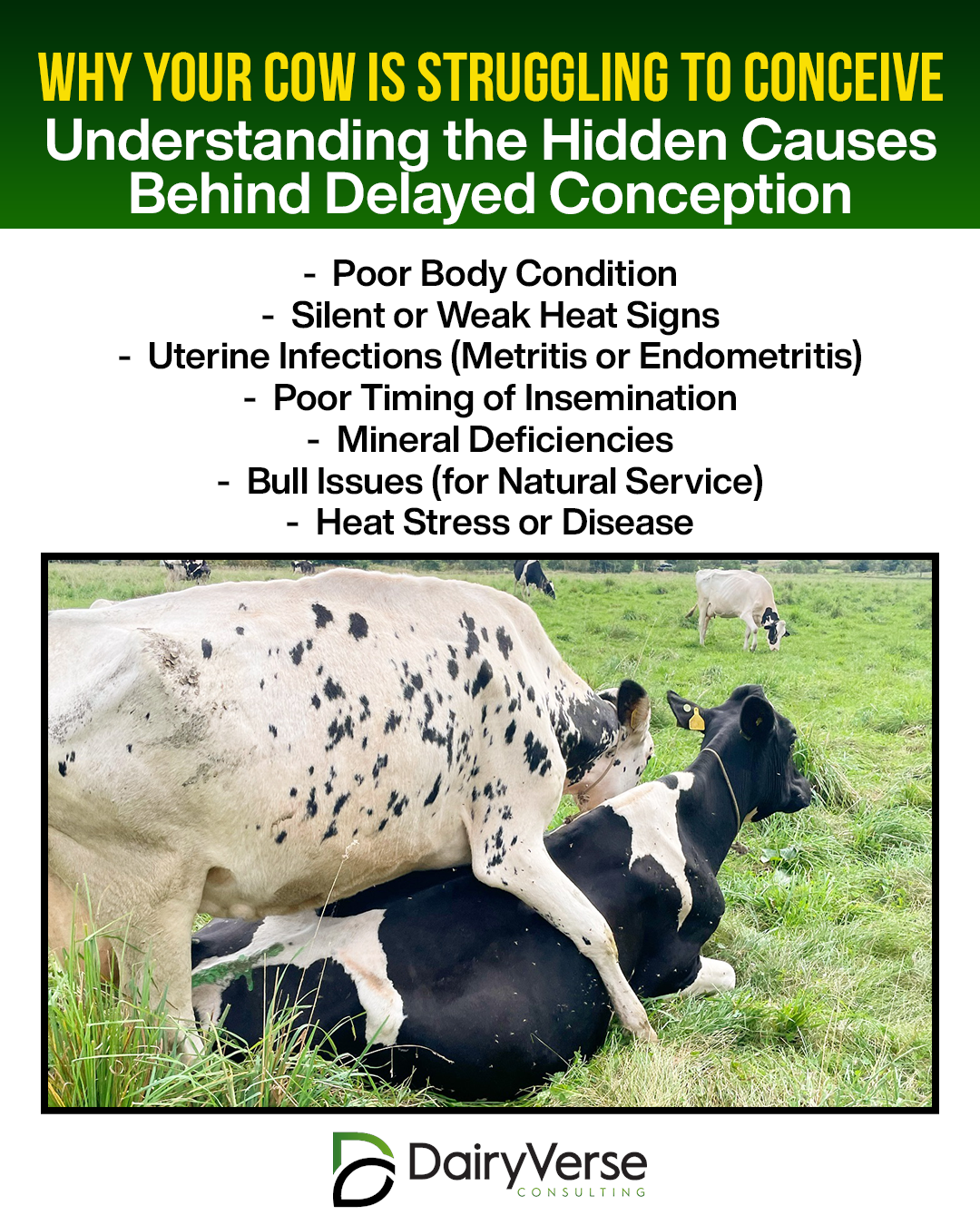Address
304 North Cardinal
St. Dorchester Center, MA 02124
Work Hours
Monday to Friday: 7AM - 7PM
Weekend: 10AM - 5PM
Address
304 North Cardinal
St. Dorchester Center, MA 02124
Work Hours
Monday to Friday: 7AM - 7PM
Weekend: 10AM - 5PM
Reproductive challenges in cows can be frustrating, especially when everything seems normal at first glance. If your cow has been served but keeps coming back on heat, or isn’t getting pregnant at all, there may be more going on than meets the eye.

Understanding the Hidden Causes Behind Delayed Conception
Reproductive challenges in cows can be frustrating, especially when everything seems normal at first glance. If your cow has been served but keeps coming back on heat—or isn’t getting pregnant at all—there may be more going on than meets the eye. Let’s explore some common (yet often overlooked) reasons your cow might be struggling to conceive:
Cows that are too thin or too fat may experience hormonal imbalances. A cow needs just the right body condition score (BCS) to ovulate normally and sustain a pregnancy.
What to do:
Ensure she’s on a balanced diet rich in energy, protein, and minerals. Use dairy meal and mineral supplements to support her condition—especially during the dry season or post-calving recovery.
Sometimes a cow may not show clear signs of heat, making it easy to miss the right time for service. This is often due to stress, poor nutrition, or underlying reproductive issues.
What to do:
Observe cows at least twice a day for heat signs—early morning and late evening. You can also use heat detection aids like tail paint or mount detectors.
After calving, a cow’s uterus needs to clean out properly. If not, bacteria can thrive and cause infections that affect fertility.
What to do:
Watch for abnormal discharge, bad odor, or delayed return to heat. A vet can help with diagnosis and treatment—often with antibiotics or uterine flushing.
Even with a healthy cow, if insemination doesn’t happen at the right time, fertilization may fail. The egg is only viable for a few hours.
What to do:
Inseminate 12–18 hours after first signs of standing heat. Work closely with an experienced AI technician.
Lack of key minerals like phosphorus, selenium, and copper can affect hormone production, heat expression, and embryo survival.
What to do:
Add mineral blocks or powdered supplements to their daily feed. Talk to your agrovet about fertility-specific supplements.
If you’re using a bull, he could be the reason—not the cow. Low libido, poor sperm quality, or STIs like trichomoniasis can cause low conception rates.
What to do:
Get the bull checked by a vet, especially if multiple cows aren’t conceiving after being served by the same bull.
High temperatures, mastitis, foot rot, or other illnesses can reduce fertility. Stress reduces appetite, hormone levels, and immune strength—all critical for reproduction.
What to do:
Provide shade, clean water, and treat any illnesses early. A healthy cow is a fertile cow.
Products like Fertility+® are specially formulated to address reproductive challenges and improve conception outcomes in dairy cows:
Ask your agrovet for more details or a recommendation based on your cow’s condition.